There are certain things we do simply because it’s the societal norm. We go to university, we get married, have children and we buy a home. These are all things that are part of our adult journey, and each tells us, our families, and others that we have arrived or, at least, we are arriving.
For most of us, buying a house is the biggest financial commitment we’ll ever make, and yet we often give more thought to planning a foreign holiday, something that costs less than a monthly mortgage payment.
I am not saying that you shouldn’t buy a house, simply that you need to understand your motivations and the financial realities before you start browsing listings and viewing properties.
Table of Contents
1. Why Pay Rent when you can Buy – Is it True?
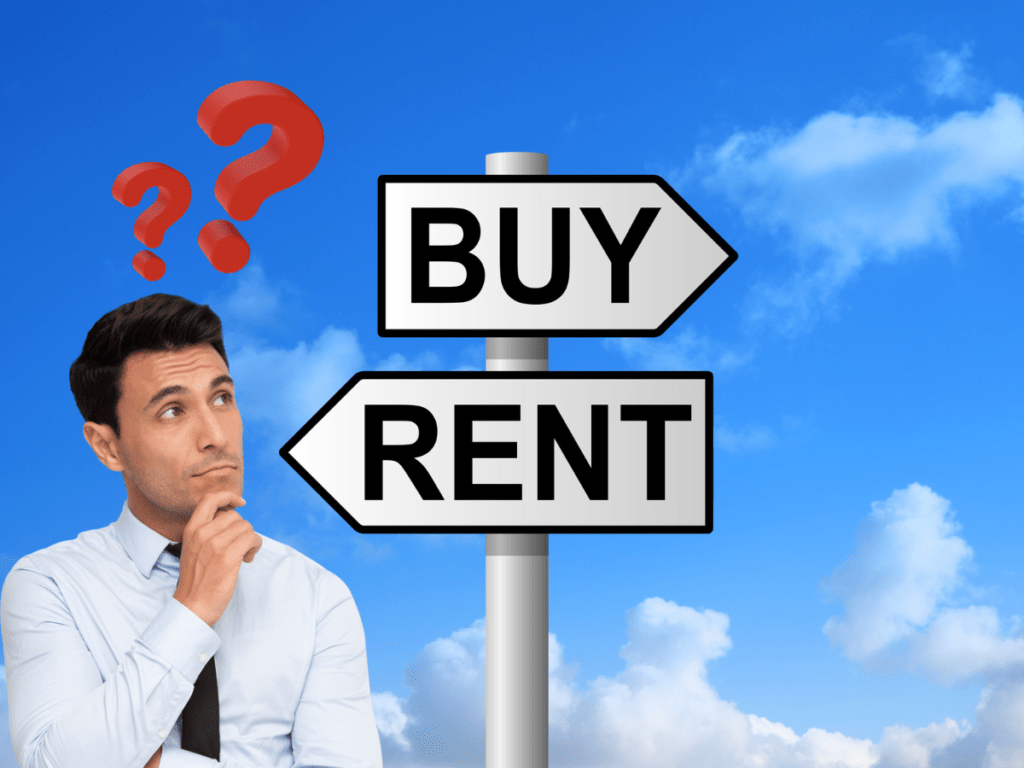
This is the most compelling reason why we choose to buy houses. It seems so simple and just makes intuitive sense. Why would I pay someone else’s mortgage when I could pay my own? Paying rent is like flushing money down the toilet, but with a mortgage I’m building wealth. We’ve all heard these, and they make perfect sense to us.
But wait a minute, does any of this survive hard examination? When you buy your home, most of your mortgage payment ends up in the pockets of your bankers as interest. You are also on the hook for other costs such as insurance, property taxes, maintenance and repairs, which as a renter, will be paid by your landlord.
Then there are the costs associated with buying and selling houses including fees charged by realtors, lawyers, surveyors and valuers. Finally, there are taxes, your government will take its chunk, and additional fees charged by banks. These all add up and can result in a total much more than rent for a similar property.
You can find some great online tools to assess the financial wisdom of purchasing a home just by plugging in a few numbers. Calculator.net is one and Financial Mentor has a similar tool.
As a general rule and in most situations, if you don’t keep your home for at least five years, you’ll lose money. In other words, unless you have firm plans to stay in your new house for over five years, renting is probably the better decision from a purely financial perspective.
2. The Home You Live in is not an Investment
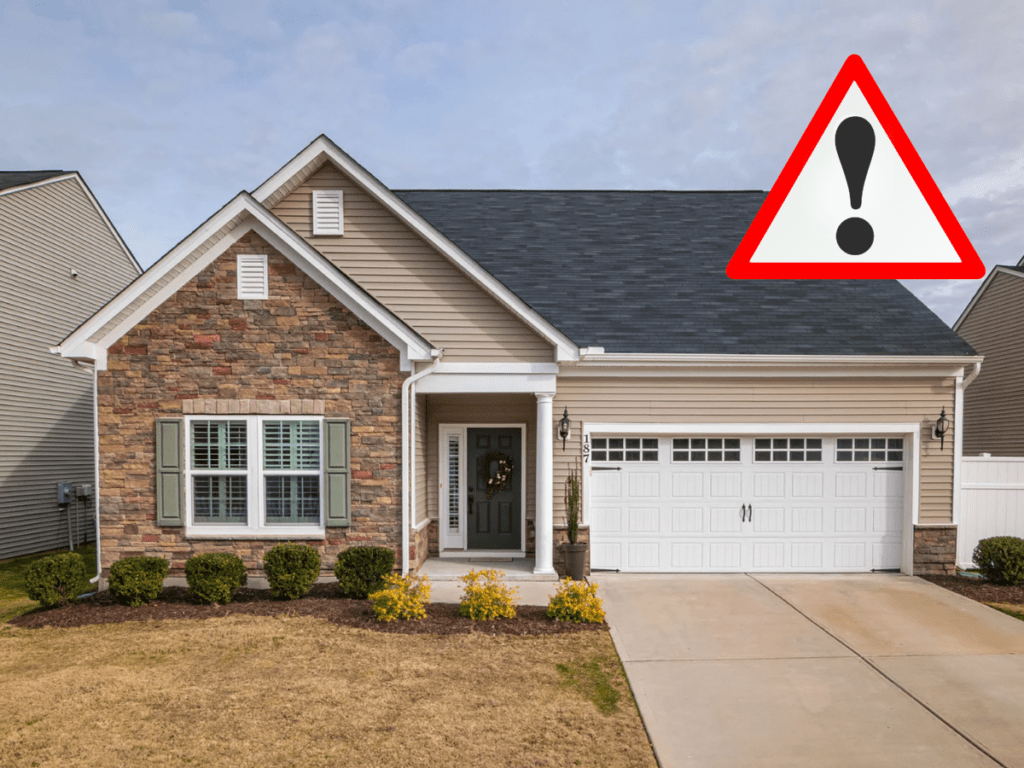
Many of us buy a house because we view it as an investment, but if we did some basic Grade 2 math, we soon realize that unless we are very lucky, our home will be a poor investment. The five-year generalization described above omits one very important factor: the opportunity costs of alternative investments.
Renting a home is typically cheaper, in terms of regular costs, than purchasing a similar abode. A good rule of thumb is that the extra costs of ownership usually add up to an additional 50% beyond the cost of the mortgage. This is the figure you have to compare against your rent, not the mortgage alone.
Insurance and tax are easy to identify, but estimating maintenance and repairs is tougher. Most years we spend a small amount, but eventually you will incur major costs.
Monique (my wife) used to question as being too high, my estimate of 1% of the property value per year for maintenance. She owns a small house in rural Jamaica and over the years she spent much less than 1% on upkeep. At least that was the case until 2019, when we spent over 15% of the value of the house in major maintenance.
What if we took the difference between the cost of rent and the real cost of ownership, and invested it in simple index funds?
In virtually every region, house prices have risen by about 2% above inflation over the long-term, while stock markets typically outpaces inflation by at least 6% over a period of several years. Once you factor this into your calculations suddenly your home starts looking like an unwise investment choice.
The caveat to this is that rather than invest the difference, many of us end up spending it on things that we don’t really need, such as a fancier car or expensive clothes. Then a house purchase starts looking better, not as an investment but as a form of enforced savings. Our mortgage payments are a priority as we don’t want to see our house repossessed by its real owner, the bank, so we pay it every month rather than spend on trinkets.
3. A Renter Won’t Be Trapped by Their Home – Ever!
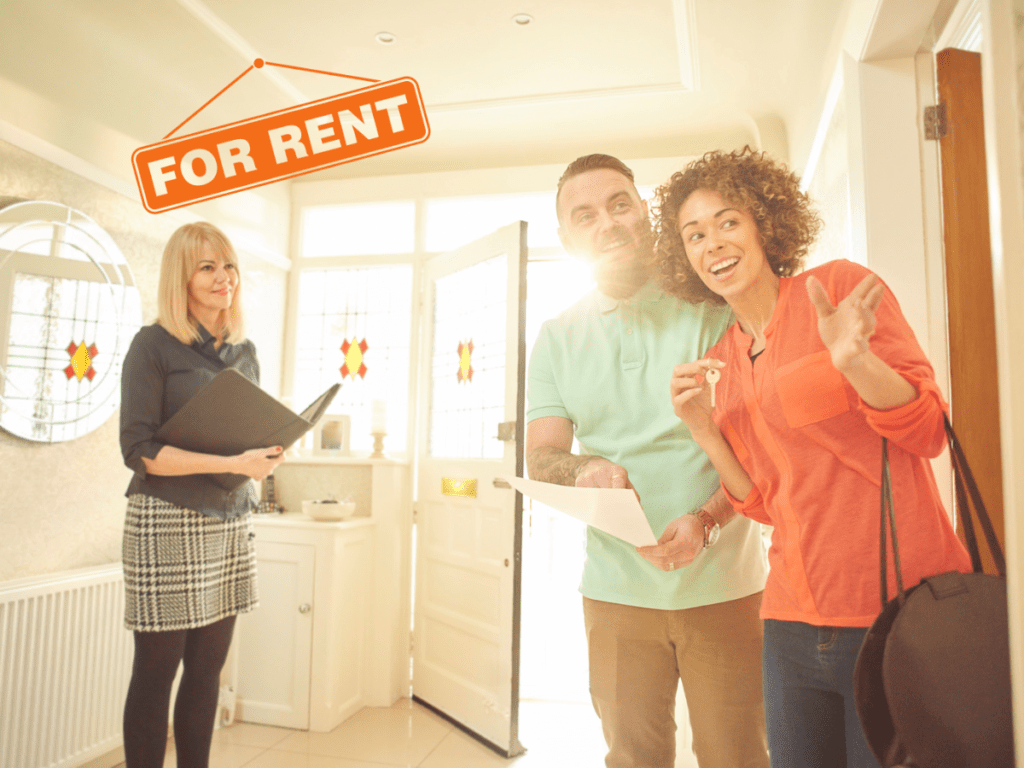
Most housing markets suffer occasional crashes. Countries like Canada and the UK are going through housing market crashes right now. House prices in Toronto have already fallen by 15% and economists are predicting that by next spring, prices will fall by at least 30%.
If you need to sell your house, it means that you are going to take a major hit. You might even be in a position where the sale won’t generate enough revenue to cover what you owe the bank. If you don’t have enough in your savings to pay the bank, you’re trapped.
A renter doesn’t have this problem.
What happens if you have a sizable mortgage payment, and you lose your job or your income drops significantly? What happens if you can’t pay your mortgage and you can’t afford to sell? Banks have a degree of patience if you are open with them, but pretty soon you’ll find yourself in a foreclosure situation.
A renter in the same circumstances simply gives notice and finds a cheaper place to rent.
Let’s stop this negativity and think positively. You get great news that you’ve been offered that dream job in another town or overseas. Fantastic! Or maybe not so much if you can’t sell your house. Whatever you choose to is likely to cost you in terms of money, convenience, or both. Maybe you end up turning down the dream job?
Of course, this would not be a problem for the renter who has the relatively minor challenge of finding a rental in the new town. In fact, economies where there are a high proportion of renters seem to have an advantage due to this relatively easy mobility of labour.
4. House Creep and the Rat Race
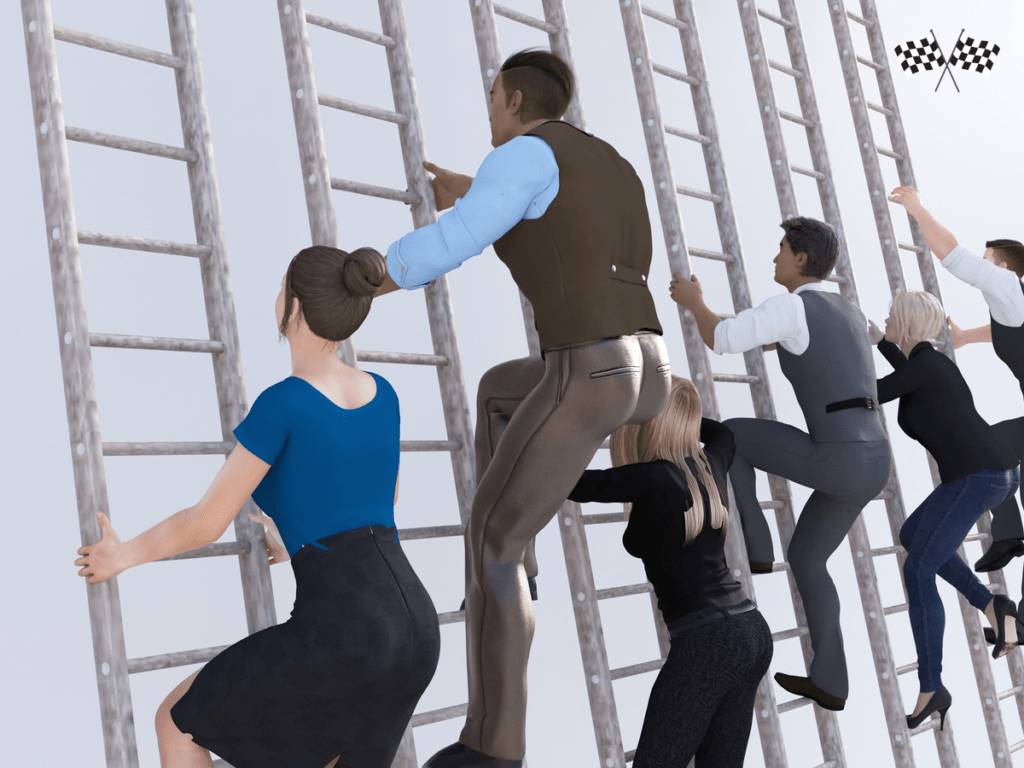
The normal view of success means that when you can afford to, you do one thing. You upgrade. A better job means it’s time to drive a more luxurious car, wear better clothes and buy a bigger home.
We rarely take the time to understand what we truly want or need, we simply allow our lifestyle to expand to fill our increased income. Another term for this is the rat race.
We are conditioned to never be satisfied by what we have and as we upgrade our lifestyles, we have to work harder and harder to meet increasing financial commitments.
Before you upgrade, ask yourself some important questions. Do I really want to buy this larger house? Are the so-called advantages of this neighbourhood really benefits for me? Are we happy in our current home? What will I miss about where we live now? Have I carefully thought about the financial implications for us of buying a larger home? Have I considered the costs beyond just the bigger mortgage payments and accounted for higher tax, insurance and maintenance costs?
5. The Fear of Missing Out
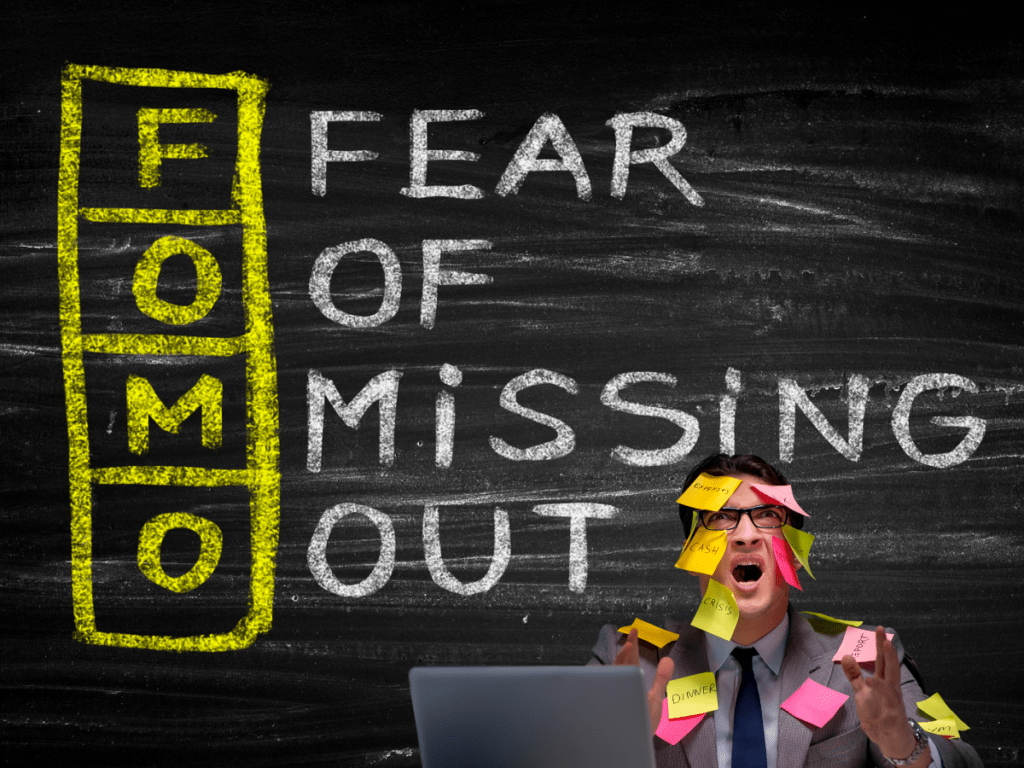
Fear is the most powerful of our emotions. Fear can trigger strong physical reactions in our bodies through the release of hormones such as cortisol and adrenaline. Our thinking can become foggy as parts of our brains shut down. So guess what? Unless we need to run away from a marauding sabre-tooth tiger or are in another emergency situation, we make bad decisions.
Fear can play a big part in home-buying decisions. It’s fear of missing out or FOMO. If I don’t get onto the property ladder now, it will be too late? If I don’t buy now, I will never be able to afford to buy a house? These can be terrifying thoughts, especially when we see our peers and friends buying homes. We simply have to act now!
It’s because of FOMO that the craziest buying frenzies seem to occur just before a housing price crash. We were in Toronto in the spring and almost every home on the market seemed to be subject to bidding wars and were sold well above asking price. Of course, fast forward 6-months and these houses have dropped in value by 15% and with an average sale price of about a million dollars. That’s a serious wedge of value to lose in a few short months.
Who’s missing out now?
6. Sometimes Buying a House Just Makes Sense

Of course, there are many good reasons to buy a house. You can have a huge sense of pride and belonging. You can change and upgrade your home in ways that you never would with a rental property. And yes, sometimes, there can be solid financial justification for purchasing a house.
For many years Monique and I lived in a lovely apartment that we rented, while at the same time owning several investment properties. Many thought this was strange, but we knew that the math worked in our favour. We now own the house where we currently live. Again, this made sense, as we purchased it as a bank repossession at a price well below its true market value. We also recognized that we could increase the equity further through careful and cost-effective renovations.
That said, our home has now reached the point that from a purely financial perspective, we should have started thinking about selling it a couple of years ago. It’s doesn’t earn any income, there will be significant maintenance costs in the future and in the long-run increase in value will almost certainly lag behind other investments.
I am not saying that you shouldn’t buy a home, just that you should think carefully first. What none of us should do is mindlessly follow the conventional wisdom preached by our parents and the Baby Boomer generation, that we must buy a house. Remember, just because it’s conventional, does not mean it’s necessarily wise.
Remember that in almost every situation, the home we live in is not an investment, at least not a good one. Most importantly, before we buy a home, we should be reasonably confident that we are going to keep it for at least 5 years or whatever period you identify from one of the online calculators.
Do you need to be flexible and mobile? Is the property market so hot that it might be over-heating? Are you not prepared for the financial and other commitments of owning your home? If the answer to any of these is yes, buying probably isn’t for you, at least not now.
Buying a house is a huge decision, so take the time to think through your decision carefully and ignore advice, however well-meaning, from others, which, of course incudes any comments made by me!
DISCLAIMER: This article is for informational purposes only, you should not construe this information or other material as legal, tax, investment, financial, or any other form of advice.
Author
Nick Abbott
Hi, I’m Nick. Visiting foreign countries has been an important part of my life since my parents moved to Kano in Nigeria in 1977. Since then, as both a military officer and in later jobs I have enjoyed the huge privilege of being exposed to many different countries and cultures.
I am delighted to be able to support my wife Monique and Yes2Yolo primarily by contributing travel articles, providing editing and proof-reading services and being a general sounding board.



